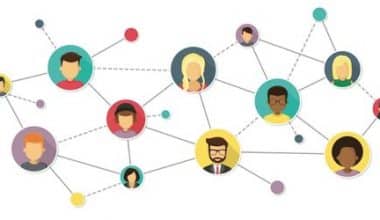We commonly use the terms “need” and “want” interchangeably. But have you ever questioned if needs and wants really vary at all? Despite their frequent interchangeability, “needs” and “wants” do have meaningful distinctions, particularly in the realm of economics and finance. A need is an absolute prerequisite for something, while a want is merely an aspiration. The satisfaction of wants is not important to one’s survival, but the satisfaction of needs is. This is the key distinction between needs and wants. Within this article, we’ll talk about, what Is need? So, what does this mean? Who or what is want? meaning, and significant variations between needs and wants
Difference Between Needs and Wants
Wants and needs are two words that are sometimes used interchangeably yet have quite different meanings. A want is something you want but don’t necessarily require. A need, on the other hand, is something necessary for your survival or well-being.
Some examples of wants are:
- A new automobile
- A luxurious holiday
- The most recent gadget
Examples of needs include:
- Food
- Water
- Shelter
- Clothing
It is critical to discern between wants and necessities in order to make better financial decisions. If you are trying to make ends meet, it is critical to prioritize your needs. When your necessities are addressed, you can start thinking about your wants. It is also crucial to keep in mind that desires can alter over time. What you desire today may not be what you desire tomorrow. As a result, it is critical to be adaptable and not become overly tied to your desires.
Ultimately, the best way to decide whether something is a want or a need is to ask yourself whether you can live without it. If you can, then it is probably a want. If you can’t, then it is probably a need.
Here is a table that summarizes the key differences between wants and needs:
| Want | Need |
| Something that you desire, but do not necessarily need | Something that is essential for your survival or well-being |
| Can be fulfilled in many different ways | Can only be fulfilled in a limited number of ways |
| Is not essential for your survival | Is essential for your survival |
| Can be delayed or postponed | Cannot be delayed or postponed |
| Can be sacrificed for other things | Cannot be sacrificed for other things |
What Are Needs
Needs are things that are necessary for survival and well-being. They can be physical, such as food, water, and shelter, or they can be psychological, such as love, belonging, and self-esteem. Needs are often subjective, meaning that what one person considers a need, another person may not. However, there are some needs that are considered universal, such as the need for food, water, and shelter. Needs can be met in a variety of ways. For example, the need for food can be met by eating, the need for water can be met by drinking, and the need for shelter can be met by living in a house. Needs can also be met through relationships, such as the need for love and belonging can be met by having friends and family.
When needs are not met, it can lead to a variety of problems, such as physical illness, psychological problems, and social problems. It is important to meet our needs in order to be healthy and happy. The term “needs” refers to those things that are absolutely necessary for a human being to have a healthy life. Personal, psychological, cultural, societal, and other factors are required for an organism to live. Food, clothes, and shelter were the three basic needs of man in ancient times, but as time passed, education and healthcare became essential, as they improved the quality of life. They are a person’s primary priority because they are what keep us healthy and safe. As a result, if demands are not met on time, it can lead to disease, incapacity to operate correctly, or even death.
What Are Wants
Wants are desires or needs that are not essential for survival. They can be things like material possessions, experiences, or relationships. Wants can be driven by a variety of factors, such as personal values, social norms, and marketing. Wants can be positive or negative. Positive wants can motivate us to achieve our goals and improve our lives. Negative wants can lead to unhealthy behaviors and addictions. It is important to be aware of our wants and to make sure that they are aligned with our values and goals. We should also be mindful of the potential negative consequences of our wants.
Wants are desires. The things you want are those you would like to have. They don’t, however, guarantee your survival. Every person has a unique set of wants or desires. Many people want for a huge home, premium food, fancy apparel, a new car, a trip overseas, and so on. Desires could change throughout time. For instance, you could have wished to purchase a large toy castle when you were a child. However, as you age, your likes and preferences change, and your desires do too. The inability to satisfy a need may not result in physical sickness or death, but it may result in mental misery. To evaluate whether what you want or need is a necessity or a want, simply ask yourself, “Can I survive without this?” If it were a need, the answer would be no; if it were a want, the answer would be yes.
Needs and Wants Economics
Generally Needs and wants are two fundamental concepts in economics. Needs are things that are essential for survival, such as food, water, and shelter. Wants are things that people desire but do not need to survive, such as luxury goods and services. Economists study how people make choices about how to satisfy their needs and wants. They also study how the production of goods and services is organized and how prices are determined. The study of needs and wants is important because it helps us to understand how the economy works. It also helps us to make better decisions about how to spend our money.
Here are some of the key points about needs and wants in economics:
- Needs are essential for survival, while wants are not.
- People have unlimited wants, but limited resources.
- The choices that people make about how to satisfy their needs and wants affect the economy.
- The production of goods and services is organized in different ways, such as through markets or through planning.
- Prices are determined by supply and demand.
How to Budget for Needs and Wants
Budgeting doesn’t have to be difficult or take up a lot of your day. In actuality, the simplest budgeting methods are frequently the best. Consider the 50/30/20 rule as an example. The 50/30/20 rule is an easy monthly budgeting technique that outlines exactly how much you should allocate to savings and living expenses each month. You can safely avoid overpaying and gradually increase your savings with a clear big-picture overview of your monthly budget—all without meticulously keeping track of each and every purchase. The 50/30/20 rule is a simple budgeting technique that can assist you in managing your money in an efficient, straightforward, and sustainable manner. The general rule of thumb is to allocate 50% of your monthly after-tax income for needs, 30% for wants, and 20% for savings or debt repayment.
You may make better use of your money by consistently maintaining a balance between three key areas of expenditure. You can also save yourself the time and frustration of going into the specifics every time you spend by keeping track of only the three main categories. Some additional tips include:
#1. Track Your Spending.
Tracking your spending is one of the most important things you can do to improve your financial situation. It helps you see where your money is going, so you can make changes to save more and reach your financial goals. There are many ways to track your spending. You can use a budgeting app, a spreadsheet, or even just a notebook and pen. The important thing is to find a method that works for you and stick with it. Once you start tracking your spending, you’ll be surprised at how much money you’re wasting on things you don’t need. You may also find that you’re spending more money on certain categories than you thought. This information can help you make changes to your spending habits and save more money. Tracking your spending is a simple but effective way to improve your financial situation.
This will help you see where your money is going and where you can cut back.
#2. Create a Budget.
This will help you track your income and expenses and make sure you are not spending more than you earn.
#3. Prioritize Your Needs.
Make sure you are covering your essential expenses, such as housing, food, and transportation, before you spend money on wants.
#4. Cut Back on Unnecessary Expenses.
There are probably some things you are spending money on that you don’t really need. Try to cut back on these expenses so you can save more money.
#5. Set Financial Goals.
Having specific financial goals will help you stay motivated to stick to your budget. Automate your savings. This will help you save money without even having to think about it. Review your budget regularly. Your budget should be a living document that you review and adjust regularly as your income, expenses, and goals change.
Following these tips can help you create a budget that works for you and helps you reach your financial goals.
What Is an Example of a Need and Want?
Both wants and needs can be broadly regarded as psychological forces that influence people’s behavior. For instance, a need for shelter might prompt us to look for accommodation, just as a desire for a delicious meal may prompt us to locate a reputable restaurant.
What Is the Difference Between Needs and Wants in Psychology?
Want means to wish for something or to have the desire to have it. Require something because it is necessary or extremely vital rather than merely because you want it. The descriptions illustrate how we typically differentiate between these phrases. One quality—”essential”—is at the center of the distinction.
Are Relationships a Need or a Want?
To obtain the things they want, many people put in a lot of effort. A Significant Other: While having relationships with others is important, having a life partner is more of a want than a necessity. Fashion: Having clothes is a necessity, regardless of who made them or how much they cost.
What Are Examples of Wants in Life?
Typical wants include things like
- Travel and entertainment.
- Fashion accessories.
- Gym subscriptions.
- Beverages from coffee shops.
Is Money a Need or Want?
All financial objectives can be viewed as needs, whether they are for retirement savings, debt repayment, or emergency savings. Keeping your finances in shape requires reaching your financial milestones, which should take precedence over your wants as you work toward financial freedom.
Which Is Better, Need or Want in Love?
“I want you” is simple to say because it’s about you wanting to please the one who wants you; “I need you” is more difficult to say since it’s about accepting someone else’s importance and value over your own. I need you to involve duty and weight.
What Is Considered a Need in a Relationship?
Again, everyone has different emotional demands. Some people may prioritize trust or belonging over love or desire, for example. Your partner may place more value on privacy and independence than you do on certain things, like attention and connection.
Conclusion
Following the previous examination of these two economic notions, it was determined that needs and wants are two distinct forces that motivate people to behave in order to be satisfied. When needs are not met on time, a person’s survival is in danger; yet, when wants are not satiated, they do not pose a threat to a person’s survival. So, based on their relative importance, needs can be separated from wants. Therefore, the difference is between what is necessary and what is desirable.
Related Posts
- How to Choose the Right Type of Encryption Algorithm for Your Business Needs
- Who Needs Dedicated Hosting and Why?
- BRAND MESSAGING: What Is It & How Do You Create It?
- W-4 vs W-2: What Is the Difference
- TRADITIONAL MARKETING: Definition, Examples and Differences






